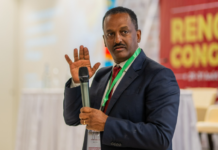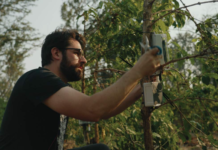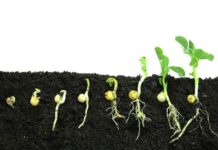Like many women residing in rural areas of Africa, Esther Zulu, a 51-year-old farmer from the Nyimba district in eastern Zambia, relies on dryland agriculture for her living.
As a single parent of four children, Zulu has worked hard to build her farming enterprise to a stage where she can now independently pay for her kid’s school fees.
“I inherited a farm and grass-roofed house that my parents used to live in. Today, with my farm income, I can pay for school fees and have built a house with bricks and with iron sheet roofing and have paved the path for other farm households too” she said.
“No one now sleeps on an empty stomach in my house, even in December and January when food is a challenge for many farmers in my district.”
Zulu’s achievements have been spurred on by her long association with a farmers’ cooperative that is supported by Community Markets for Conservation (COMACO).
COMACO is a social enterprise that finances best farming practices through the adoption of agroforestry and legume-based agriculture systems.
Through COMACO there has been an increase in food crop yields and market opportunities for over 230 000 small-scale farmers in eastern Zambia.
The International Crops Research Institute for the Semi-Arid Tropics (ICRISAT) also works in partnership with COMACO and the Chitetezo Cooperative Federation to accelerate climate resilience and expand the impacts of climate-smart agriculture.
Zulu started as a group leader of 20 farmers in 2008 and became the cooperative chairperson in 2018, partnering with COMACO in climate-smart sustainable agricultural practices.
In 2022, she became the first executive committee chairperson of the Chitetezo Cooperative Federation, a grouping with 55 cooperatives.
Zulu envisions the federation to grow as an umbrella board that provides cooperatives with a market, storage for crops, training for its leaders and education for its members.
In Zambia, ICRISAT, through the Accelerating Impacts of CGIAR Climate Research for Africa (AICCRA) programme, engages in the scaling of proven science-based climate innovations.
ICRISAT scientists also work towards empowering the Chitetezo federation in partnership with COMACO to accelerate local climate action and expand the impact of climate-smart agriculture and climate information services.
With an unpredictable climate, Zulu and other farmers had been struggling to plan for forthcoming agriculture seasons.
However, to address these challenges, ICRISAT scientists are developing the Intelligent Agricultural Systems Advisory Tool (ISat), with inputs from cooperative farmers such as Zulu for customised sustainable farming in eastern Zambia.
This helps farmers make better decisions responding to seasonal forecasts and effectively plan and apply climate-smart agriculture solutions.
“Back in the 1980s, the rainy season used to last between October and May. Today, the rainfall period has shortened and become erratic. There are periods of flash floods, and yet rivers and streams are dried up. It has become difficult to anticipate climate-related events and prepare fields for the crop season,” Zulu added.
Now, she is practicing and promoting climate-smart technologies like minimum tillage, crop rotation, potholing and ripping.
She also encourages others to plant Gliricidia trees in the fields to improve soil fertility.
“I use natural resources including trees, crop residues, livestock manure as compost, and return it back to my fields. I use minimum tillage. I grow maize as a staple and have diversified into other crops like groundnut and soybean to boost my income. I also raise chickens, cows, pigs and goats at my farm and plan to venture into fish farming.”
Zulu hopes sustainable climate-smart agriculture can end poverty among smallholder farmers in Zambia.
In recognition of her achievements, Zulu will be joining the AICCRA team at the 2022 United Nations Climate Change Conference (COP27) in Sharm El Sheikh, Egypt to be held between 5 and 19 November.









